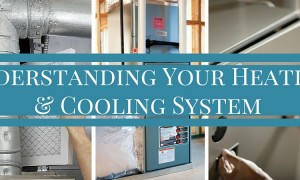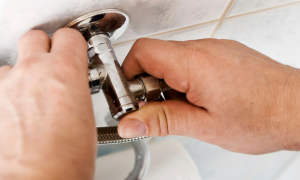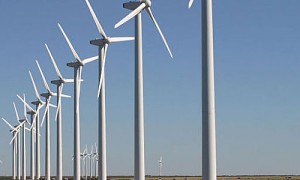By Fran J. Donegan
Keeping your system running smoothly not only makes your home more comfortable, but also affects your monthly operating costs. Poorly maintained heating, ventilation and air-conditioning systems (HVAC) work harder, wasting energy and money.
Another great reason to keep HVAC systems at peak performance: When they fail, they tend to fail at the worst possible time, like the coldest night of the year or the middle of a sweltering heat wave. Problem is, most other failures will happen at the same time, that’s when HVAC contractors get backlogged, making it extremely difficult to get your issue resolved quickly.
Preventative Maintenance is Key!
Preventative maintenance is the key to keeping HVAC equipment running at peak efficiency. There are some important steps you, as the homeowner, can take.
First, find a reputable, qualified HVAC company to service your system annually. You should schedule your system check-ups (also referred to as a tune-up or “clean and check”) just before the start of each heating and cooling season. Experienced technicians can often spot issues before they cause a breakdown.
Depending on the type of HVAC you have, a typical professional maintenance appointment will take 30-60 minutes and includes items such as:
– Checking and tightening electrical connections
– Checking components for wear or defects
– Inspecting accessible duct work for leaks
– Taking critical system measurements (temperatures, pressures, electrical readings, etc.) to ensure they meet manufacturer specifications
– Calibrating thermostat and conducting a full system operation sequence
– Checking carbon monoxide levels (heating season)
– Checking accessible gas lines for possible leaks (heating season)
– Measure refrigerant levels – improper levels can negatively impact performance, efficiency and levels, and low refrigerant levels may indicate a leak. (cooling season)
– Inspect the condensate drain for clogs, flush/clear if needed (cooling season)
– Check and replace or wash filters (you will usually need to provide a replacement filter—be sure to have this ready for your appointment)
– Provide you with a checklist of items completed and a report on the condition of your system, its components and performance
– Make recommendations for needed repairs and optional system enhancements
During a heating system check-up, the technician will typically focus on the indoor unit (furnace and blower equipment). If you have a heat pump, they will also check your outdoor unit.
During a cooling system check-up, technicians will service the outdoor unit (condenser coil and compressor) as well as the indoor unit (blower and evaporator coil).
Understanding Equipment Efficiency Ratings
For gas burning heating equipment, the Annual Fuel Utilization Efficiency (AFUE) rating measures how much fuel a furnace or boiler converts to heat and how much is wasted. It is not unusual to find old furnaces with an AFUE below 70 percent, which means that over 30 percent of the fuel is wasted. High-efficiency furnaces available today can achieve AFUE ratings of above 98 percent. That could mean a reduction in heating bills of 20 to 30 percent. Other benefits of high-efficiency furnaces include quieter operation and enhanced parts warranties.
For cooling equipment, the Seasonal Energy Efficiency Ratio (SEER) measures the energy efficiency of cooling systems—the higher the number, the more efficient the equipment. Federal regulations require a minimum SEER of 13 or 14, depending on where you live, but market today’s high-efficiency cooling equipment can achieve SEERs of more than 20.
So what does regular maintenance have to do with efficiency? Well, let’s relate it to your car: the longer you go without an oil change, the lower your gas mileage gets – that’s because over time, build-up and residue on your car’s internal components negatively impacts their performance. Your HVAC system is no different. In fact each year that your equipment is not properly maintained, it can lose up to 5% of its efficiency due to build-up of dirt and grime on internal components and operation at below optimal levels
There are a number of things you can do on a regular basis to help maintain an HVAC system.
1. Change your air filters on forced-air systems at least every three months but check them monthly. If your house is excessively dusty or you have pets or other sources of airborne pollutants, you may need to replace filters more frequently. Higher efficiency filters will keep more of the smaller particles from building up on your system’s components. The type of filter to use and directions for changing it can be found in the manual that came with the system. If you don’t have one, ask an HVAC contractor for advice or visit the manufacturer’s website.
2. Make sure that furniture does not block heating and cooling vents, baseboard heaters and radiators and do not close registers to redirect air to other areas/rooms. If registers are blocked or closed, the system has to work harder to provide you with the comfort you want, placing a strain on the system.
3. Air-conditioning systems have an outdoor component that houses the compressor and condenser. This part of the system dumps the hot air from your house to the outside as part of the cooling cycle. Keep leaves and other debris off of the top of the unit, and clear a 2 to 3-foot space around the unit to help it work properly.
4. In the summer time, check your condensate drain monthly for potential clogs. There are additives that can be used in condensate drains to prevent clogs – it’s always a good idea to consult a HVAC professional before doing this, however.
Don’t forget to change the batteries in your carbon monoxide detector annually and check its operation periodically.
When to Replace an HVAC System
Conventional wisdom holds that HVAC systems between 10 to 15 years old with a history of repairs should be replaced because newer equipment is much more energy efficient. Furnace and air conditioning service history may be hard to come by when shopping for a home, although HVAC technicians will sometimes leave a record of the repair and maintenance items on or near the equipment. That way, future techs can see what work has been done on the system and when it was performed.
If you can’t determine the repair history of a system, it makes sense to hire an HVAC contractor to inspect it. He can tell you the age of the system and its energy efficiency, and can suggest any needed maintenance or repairs. Every situation is different, but if you are faced with a big repair bill, here’s a rule of thumb to consider: If the repairs are in excess of $700 and your system is more than 8 years old and/or it’s had multiple repairs in the past three years, have a reputable HVAC company provide an estimate for a new, more efficient system. In many cases monthly financing costs on a more efficient system can almost or totally be offset by monthly energy savings.
Home-improvement writer Fran Donegan looks to provide homeowners with top-notch advice on keeping their homes running smoothly. Fran writes on heating and cooling systems for The Home Depot. To research heating and cooling services available at Home Depot, you can click here.







I have heard that changing the filters often on my HVAC system is best for keeping it running well. However, I have heard that buying a filter that is too thick/high quality can cause the same problems as a dirty filter. I have allergies and prefer having a filter that can take care of a lot of small particles. Will it really hurt my HVAC system?
Thank you for pointing out that grime buildup could raise your heating bill by 5%. Apparently, cleanliness is money. If you have clean ducts but you still notice raising costs, it may be time to call an HVAC contractor; there are duct issues that consumers won’t have ready access to.